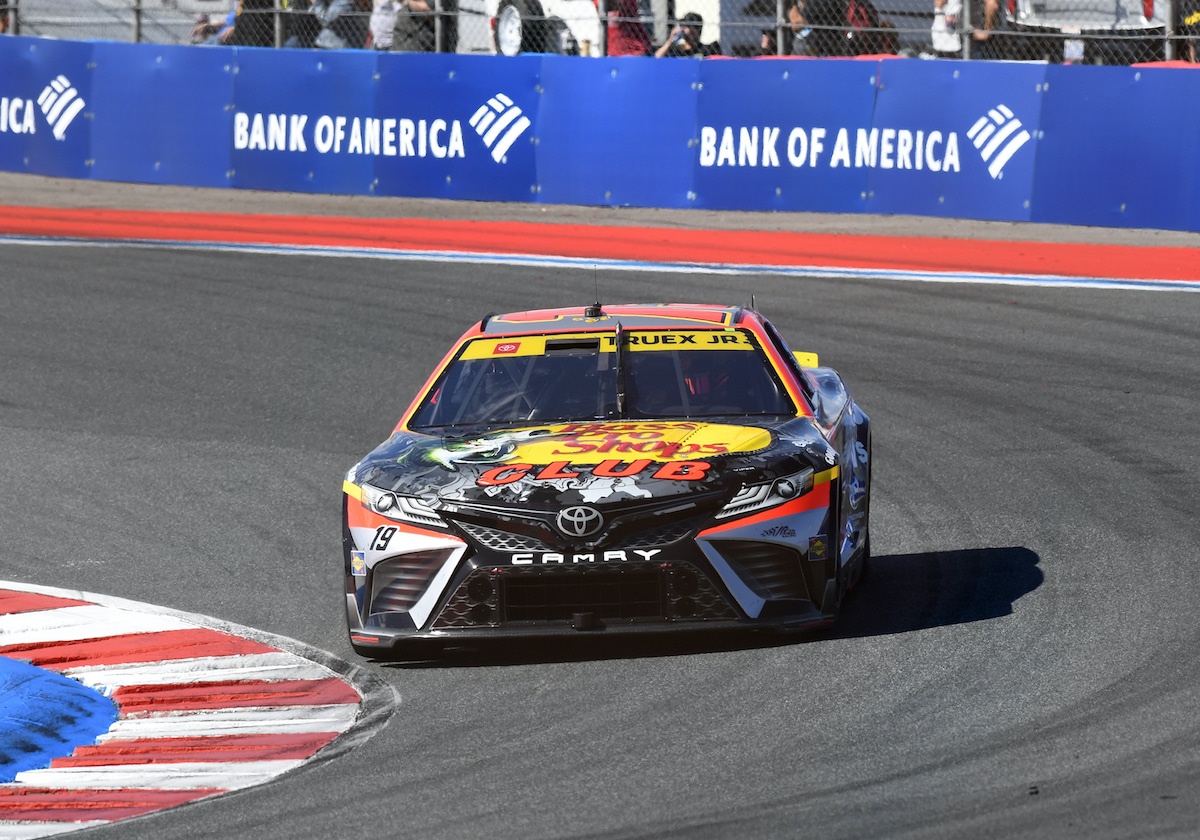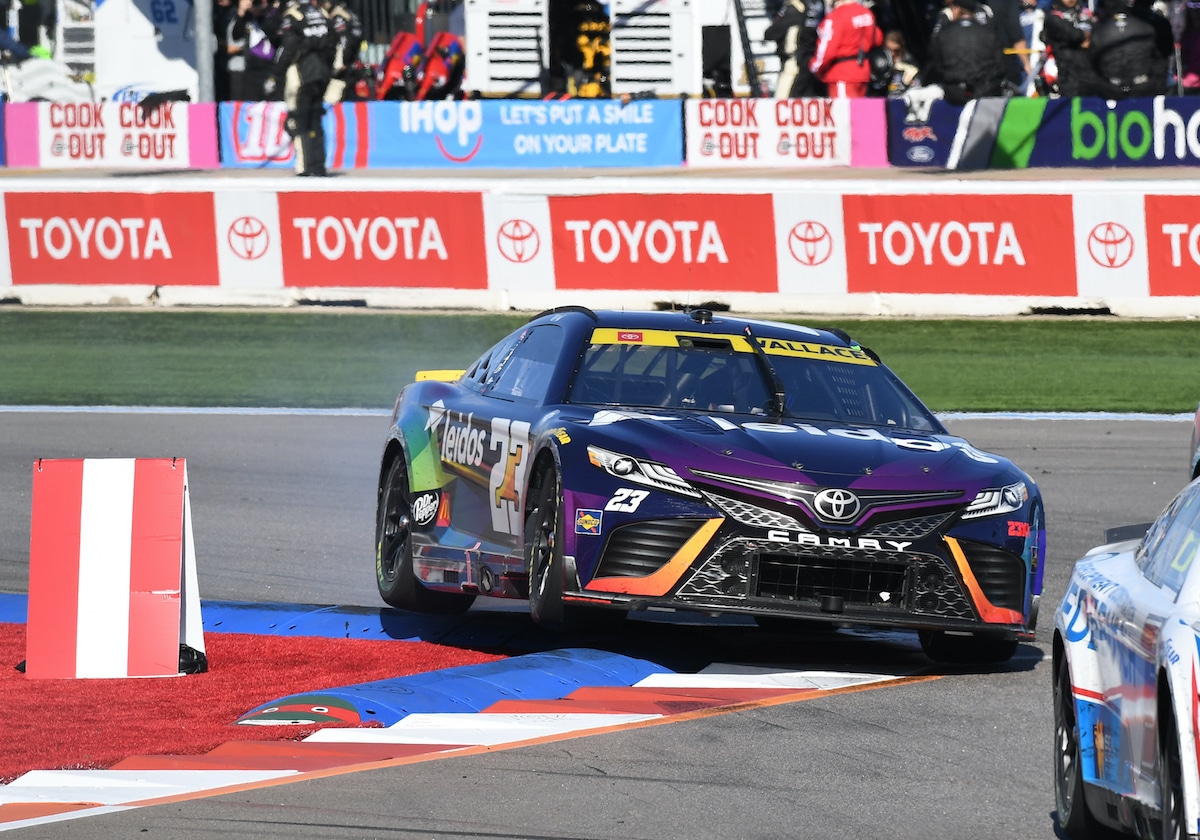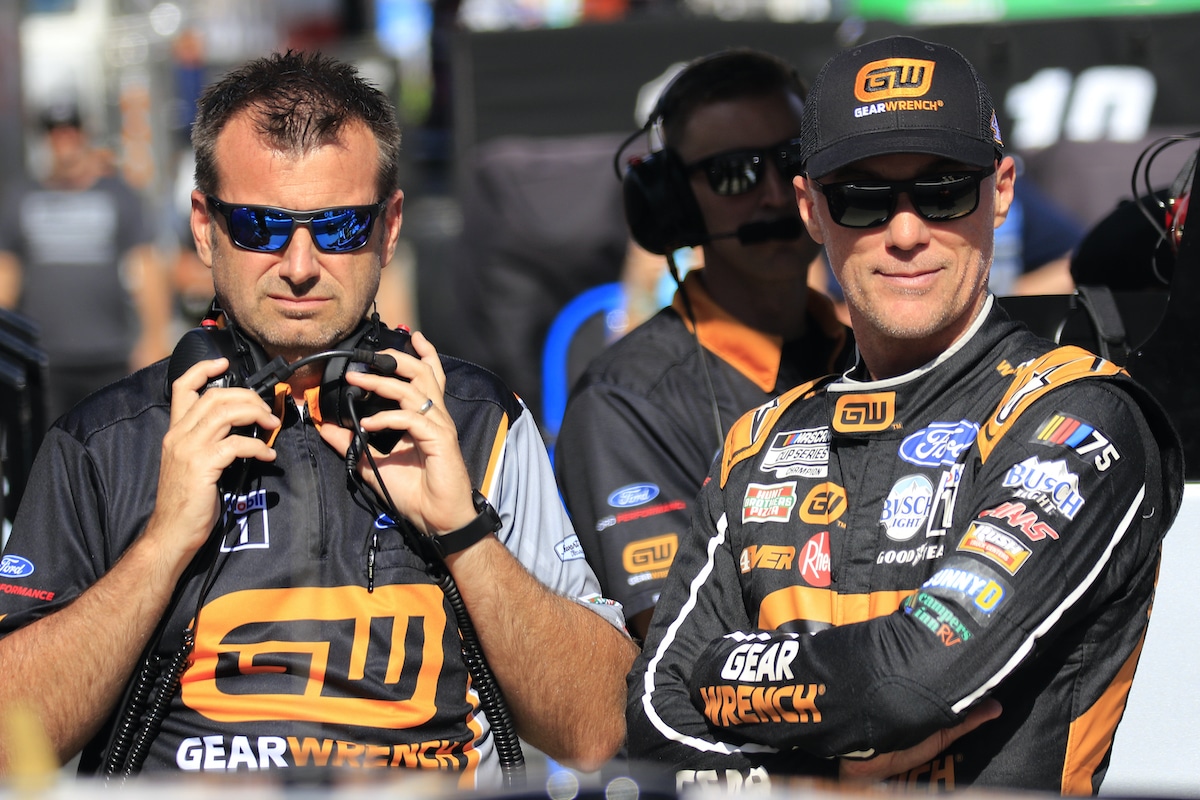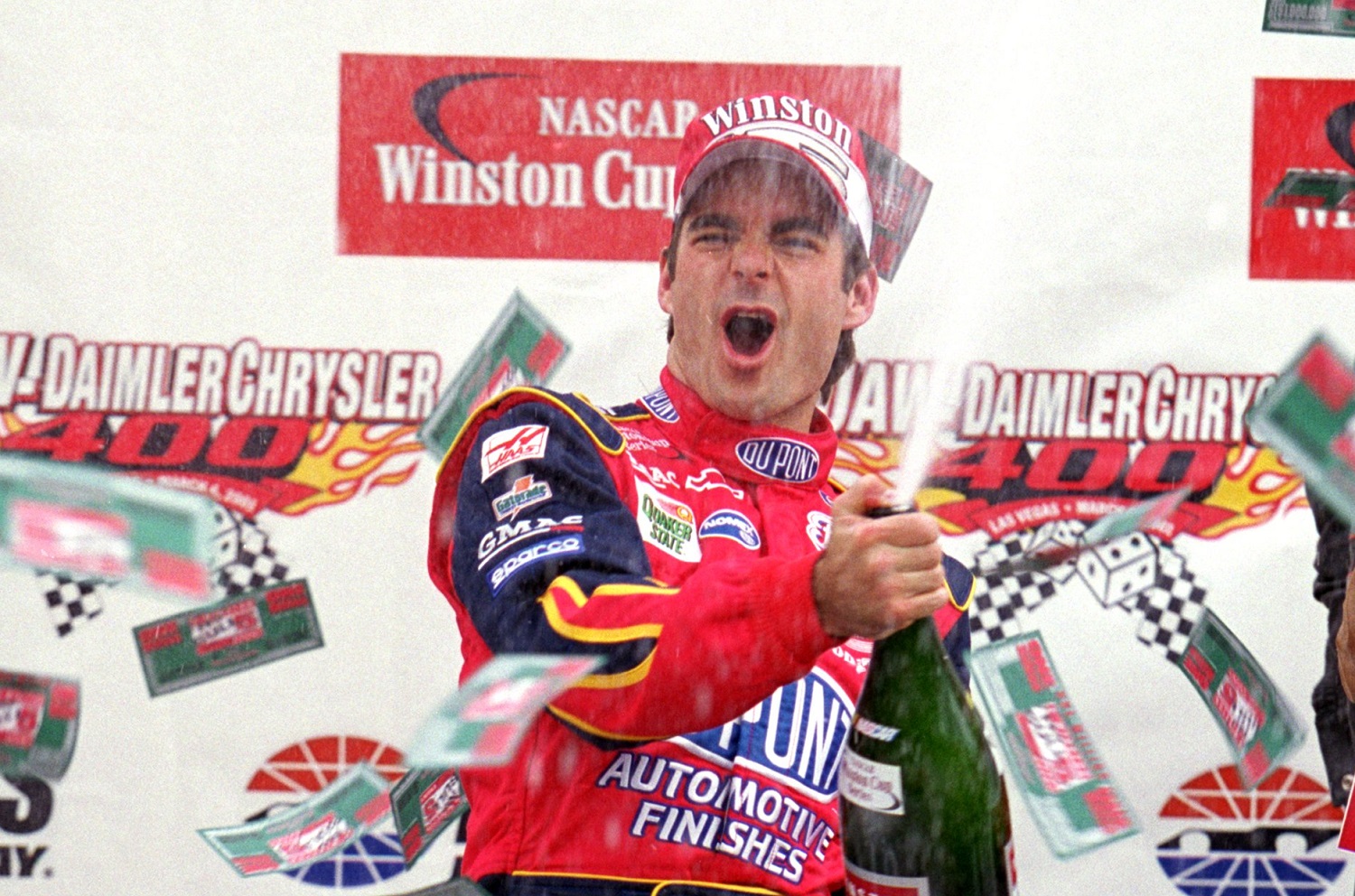
Jeff Gordon Won $500,000 in the All-Star Race After NASCAR Fudged Its Rules
Jeff Gordon won some of his 93 NASCAR Cup Series points races with the help of teammates pulling off a well-executed block and still others after drafting off a rival. As for the 2001 All-Star Race, well, the Hall of Fame driver owes it all to NASCAR.
The governing body disregarded its rules to provide Gordon a second chance and a $500,000 payday.
Jeff Gordon’s season turned around at the 2001 All-Star Race
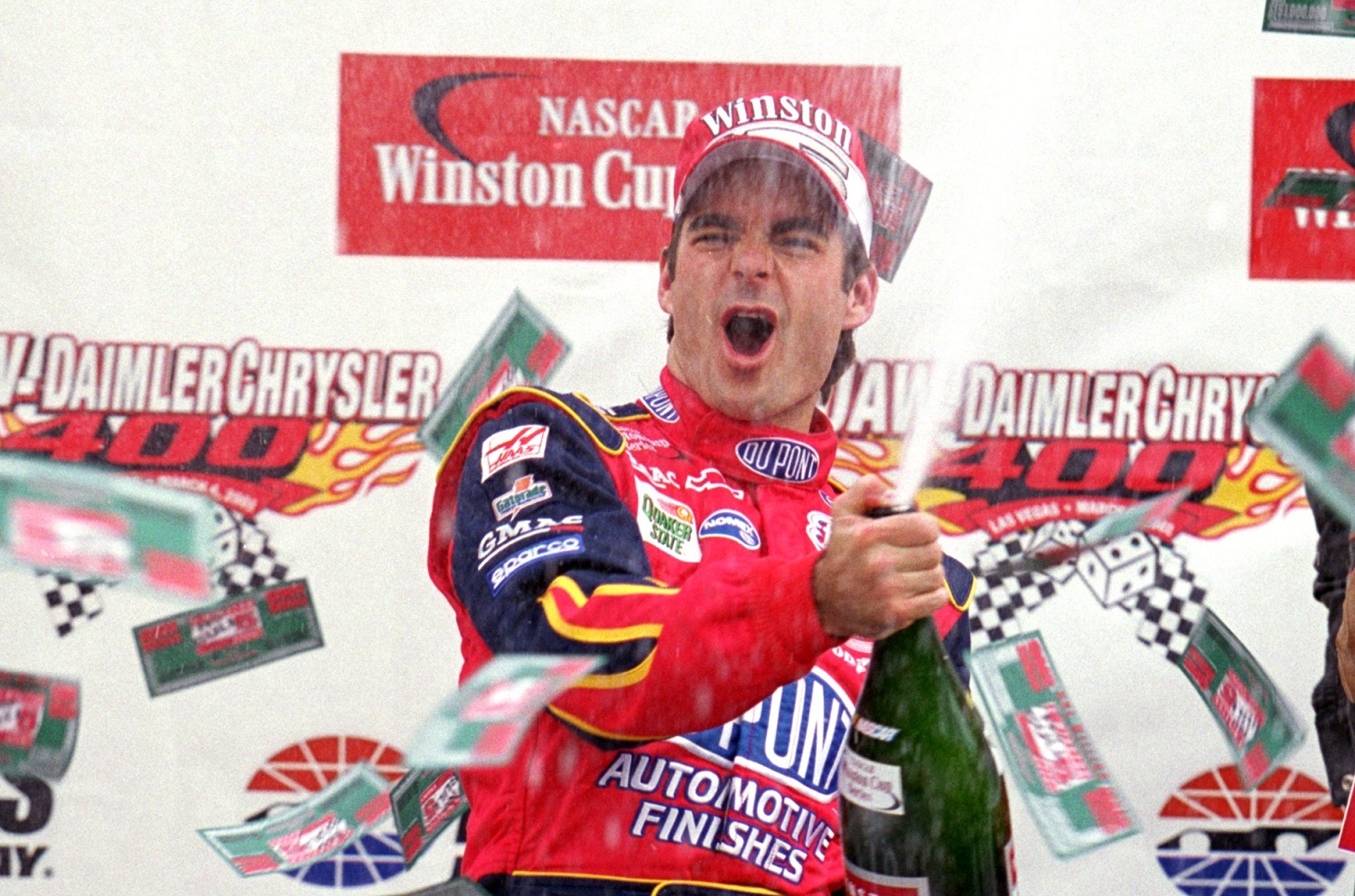
The 2001 season started tragically with Dale Earnhardt’s death at the Daytona 500. That came after drivers Adam Petty and Tony Roper from the Busch Grand National (now Xfinity) and the truck series, respectively, died in wrecks the previous year.
Understandably, NASCAR reacted by putting all aspects of safety under the microscope. However, the Cup Series continued uninterrupted after Earnhardt’s death, and Dale Jarrett of Robert Yates Racing emerged as the early-season star with three victories.
However, Gordon turned the momentum in mid-May at The Winston, the original name of the NASCAR All-Star Race. That’s where Gordon caught a break after a first-lap crash. The decision delivered his victory.
More importantly, it kick-started Gordon’s run to his fourth and final season championship.
NASCAR allowed teams to change cars
No sooner had the green flag dropped than the rain started falling on the All-Star Race in Corcord, North Carolina. Cars started sliding everywhere two turns into the race. Gordon took a heavy hit on the driver’s side from Daytona champ Michael Waltrip after going into a spin. Gordon, Waltrip, Kevin Harvick, and Jeff Burton were out of the race.
“That thing went sideways so quick I don’t know what happened,” Gordon said. “It didn’t look like it was raining that hard when we took green. But when we got down there it was.”
The rule for points races was clear: A driver could not switch to his backup car in the event of mechanical issues or crash damage. If the car could no longer run, then the day was over. But with the race red-flagged to wait out the rain and dry the track, NASCAR officials realized that losing four competitors in the limited field of 21 cars wasn’t a good look for a sport already reeling from Earnhardt’s death.
With no season points at stake, they allowed the affected drivers to go to their backup cars and rejoin the field after what would turn out to be a two-hour rain delay.
The decision was a gift for Gordon, but it didn’t come without challenges. A 70-lap lap race on a 1.5-mile track calls for a different set-up than running a 400- or 500-mile race. Other than looking under the hood to make a good-faith effort to determine the engine was legal, the Gordon team could not do much.
Gordon pulled out the victory
The race format called for a pair of 30-lap segments followed by a 10-lap finish. The smaller field helped, but Gordon still faced an uphill battle because he had to start from the back after changing cars.
“The green flag flies. No idea what we’re going to have,” recalled Steve Letarte, a crew member who later became Gordon’s crew chief. “But then Jeff Gordon has figured out a way to drive this car that perhaps is a little slower down the straightaways but is way faster in the corners. He starts to notice, the fans start to notice, we start to notice.
“This backup car isn’t half-bad. He passes car after car after car in the outside lane, moving ourselves up all the way up into the top five.”
Gordon raced out of the pits in fourth place to start the final segment. That didn’t last: Officials penalized Jeremy Mayfield and Rusty Wallace for pit-lane speeding violations, and Gordon’s Hendrick Motorsports Chevy took over second place.
Gordon blew past Tony Stewart, the seventh leader of the race, on the first lap and never looked back on his way to his third NASCAR All-Star Race championship.
“That’s an awesome, awesome race team,” Gordon said. “To have a backup car that good and be able pull it off the truck in that kind of situation, and come out and win the Winston … man, this is awesome.”
With the backup becoming his primary car, Gordon won five poles and five races over the remainder of the season to earn the NASCAR Cup Series championship.
Like Sportscasting on Facebook. Follow us on Twitter @sportscasting19.
